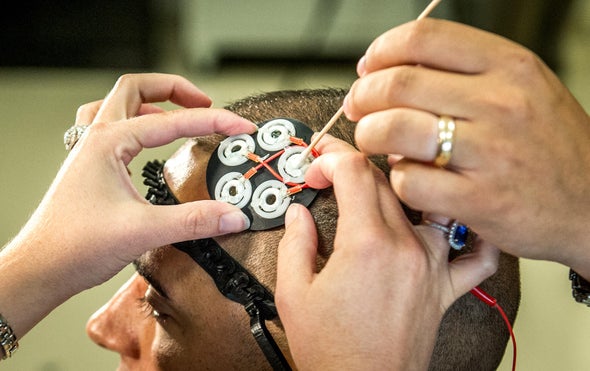Noninvasive electrical zaps, tuned specifically to individual brain-activity patterns, appear to reduce checking, hoarding and other compulsions for up to three months

Obsessive-compulsive disorder (OCD) is marked by repetitive, anxiety-inducing thoughts, urges and compulsions, such as excessive cleaning, counting and checking. These behaviors are also prevalent in the general population: one study in a large sample of U.S. adults found more than a quarter had experienced obsessions or compulsions at some point in their life. Although most of these individuals do not develop full-blown OCD, such symptoms can still interfere with daily life. A new study, published on January 18 in Nature Medicine, hints that these behaviors may be alleviated by stimulating the brain with an electrical current—without the need to insert electrodes under the skull.
Robert Reinhart, a neuroscientist at Boston University, and his group drew on two parallel lines of research for this study. First, evidence suggests that obsessive-compulsive behaviors may arise as a result of overlearning habits—leading to their excessive repetition—and abnormalities in brain circuits involved in learning from rewards. Separately, studies point to the importance of high-frequency rhythms in the so-called high-beta/low-gamma range (also referred to as simply beta-gamma) in decision-making and learning from positive feedback.



I found decent information in your article.Brain Stimulation Therapy For Depression I am impressed with how nicely you described this subject, It is a gainful article for us. Thanks for share it.
ReplyDelete